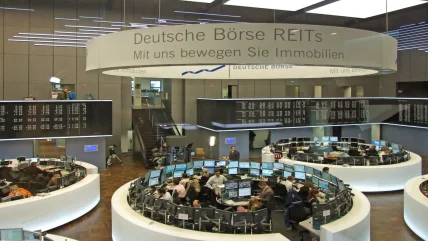
Deutsche Börse Group has posted a 13% increase in its net profit to €468.7m for the third quarter that ended 30 September 2024 (Q3 2024), compared to €414.9m reported in the same quarter of 2023.
The net profit includes €444.9m attributable to Deutsche Börse shareholders and €23.8m attributable to non-controlling interests.
In the first nine months of 2024, the German capital market company reported a net profit of €1.51bn.
The basic earnings per share (EPS) for Deutsche Börse in the reported quarter were €2.42, an increase of 12% compared to €2.16 in Q3 2023.
For Q3 2024, Deutsche Börse reported a growth of 18% in its net revenues at €1.4bn, compared to the revenues of €1.18bn in the corresponding quarter of the prior year.
The company’s net revenues for the nine months ended 30 September 2024 also increased 18% to €4.3bn compared to the net revenue of €3.6bn in the same period in 2023.
In addition, the German company’s earnings before interest, tax, depreciation and amortisation (EBITDA) rose to €801.8m compared to €684.8m in Q3 2023. This reflects an increase of 17%.
Due to its robust organic growth in net revenue, Deutsche Börse has revised its full-year 2024 guidance, now expecting net revenue to reach around €5.8bn. The company projects EBITDA to be in the range of €3.3bn to €3.4bn.
Deutsche Börse chief financial officer Gregor Pottmeyer said: “Our secular net revenue growth continued to develop positively in the third quarter, as expected. Even if the tailwinds from the phase of high interest rates are gradually slowing, we are looking at a very attractive core business with further significant growth potential.
“All the segments in our Group contributed to our success in the first nine months. Our expectations were exceeded, especially in the Commodities unit and for net interest income.”
The company reported operating costs of €603.4m in Q3 2024, reflecting a 20% increase compared to €504.9m in the same period of the previous year. This rise was primarily driven by the SimCorp acquisition, which contributed 18% to the increase.
The remaining 2% organic cost growth was mainly attributed to inflation-related factors, investments in growth projects, and higher allocations to provisions for share-based payments.






